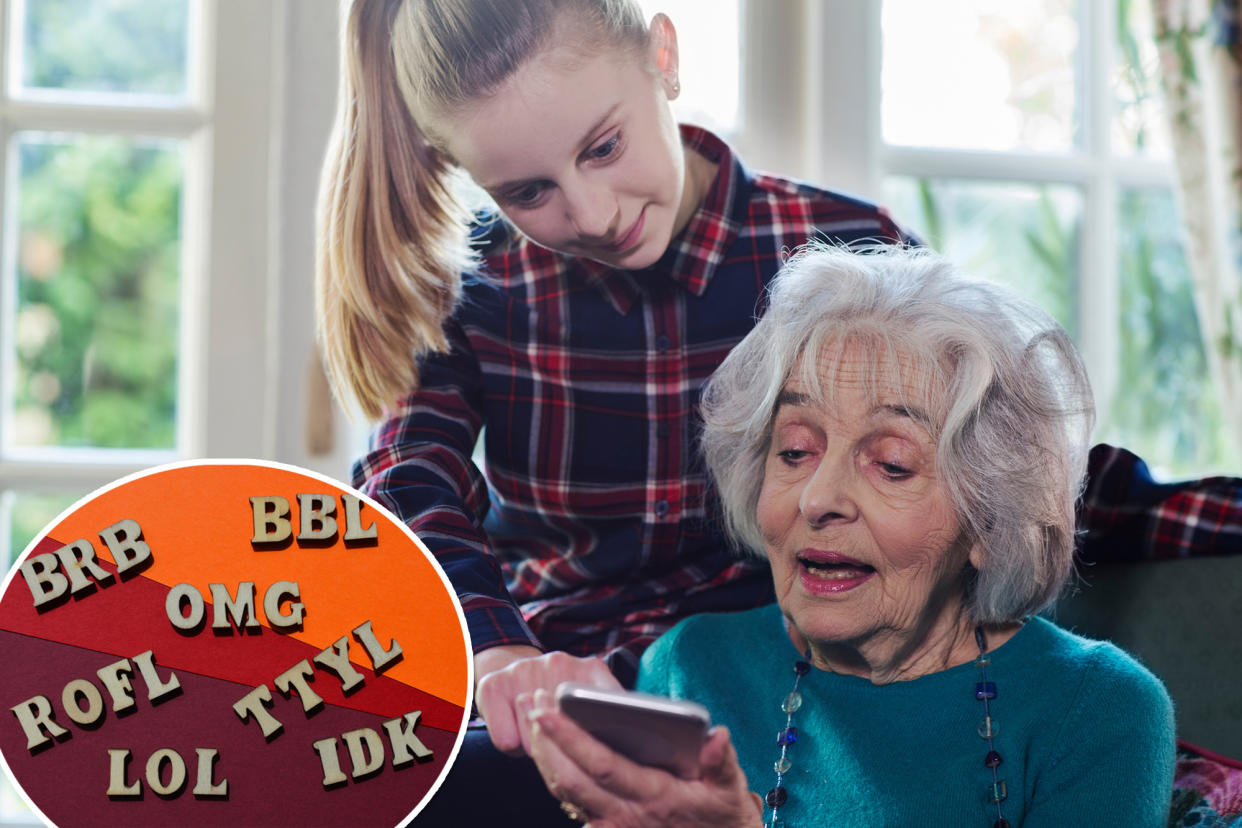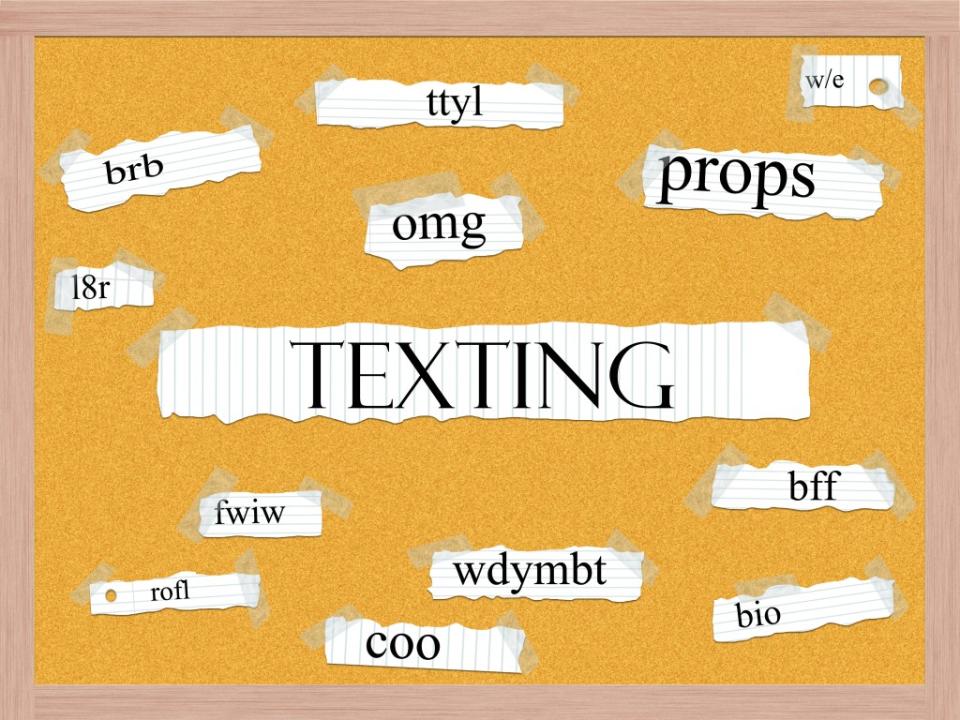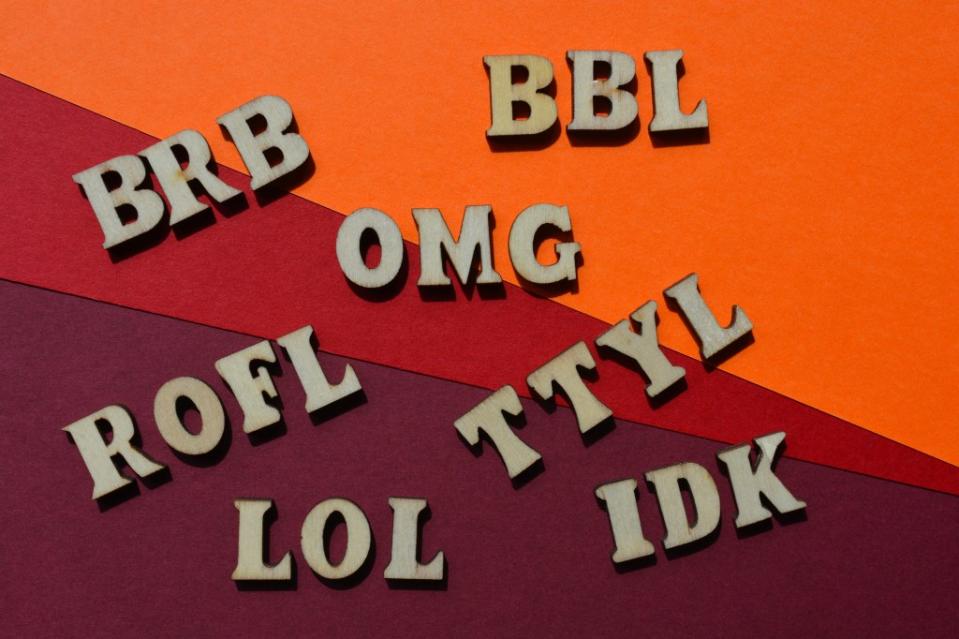Gen Z is ditching acronyms like Millennial-favorite ‘YOLO’ for cool ‘DIFTP’ slang

WTF BRO, LOL?!
Trying to decipher Gen Z-speak can be like endeavoring to crack the DaVinci code for most folks over age 30.

While millennials and Xillennials have largely grown accustomed to spicing up their in-person and online communications with cool acronyms like “LMAO,” “G2G” or “YOLO,” teens and twenty-somethings are now ushering out the outdated shorthand for much more trendy talk.
So, no more “ROTFL,” gramps. Sorry.

“What was once popular in the heyday of SMS texting (where acronyms were used instead of pressing the same button over and over to get to a certain letter and while saving money on texting charges) is now a way to show your age,” warned researchers from Currys, UK analytics experts, in a recent report.
“If you want to keep up with the kids and stay in the know when it comes to the latest and greatest acronyms,” said the pros, “we’re here to help.”
To introduce a set of new, buzzy abbreviations to the formerly hip folks born before 2000, Currys’ investigators compiled a list of antiquated acronyms and aligned each one next to its more contemporary successor.
The insiders garnered intel on Gen Z jargon from Google Search to determine what snappy speak is still hot and what’s absolutely not.

Rather than using “GR8” as a quick and cutesy way to deem something as “Great,” youngsters have opted to use more letters but a little less cheesiness with “that slaps” as an alternative, according to the study.
And instead of typing out “YOLO” — a fast way to say “you only live once,” which was popularized by a 2011 chart-topper from Lil Wayne and Drake — today’s tastemakers have selected “DIFTP,” meaning “Do It For The Plot” as its modish replacement.
The research team, too, found that newer acronyms such as “TNTL,” for “trying not to laugh,” and “ISTG” to say “I swear to God,” are virtually indecipherable for older generations.
In fact, the confusing slang has sent Google searches for their meanings skyrocketing.
Currys noted that internet inquiries like “What does SMH mean” and “What does ISTG” were imputed over 200,000 and 97,000 times, respectively, over the last year.

Generation Z is, indeed, making an indelible impact on the English language.
Owing to the influential power TikTok, linguistics have determined that US citizens will soon adopt a “TikTalk” accent, mimicking the whiney cadence and vocal inflictions of young social media superstars.
Harvard lexicographers have, too, suggested that Gen Z’s affinity for video games is now bleeding into our everyday dialogue.
Booting out commonly spun sports metaphors like “swing and a miss” or “coming out of left field,” the much more tech-happy youth is using terms like “NPC” or “Sidequest” in conversations.
When the term “NPC,” short for “Non-Player Character” is used, it’s an insult to mean someone who is boring or lacks independent thinking, blindly following an ideology without question, per Harvard linguist Adam Aleksic.

“Now we’re in a whole new ball game of people having a shared cultural knowledge of video games,” said the self-anointed etymology nerd. “So we’ve started drawing on that as a way to express our reality.”
Check out Currys’ list of the most “lit” Gen Z acronym updates.
Instead of “YOLO” (you only live once) use “DIFTP” (Do it for the plot)
Instead of “KK” use “Bet”
Instead of “LMAO” (laughing my a*** off) use “IJBOL” (I just burst out laughing)
Instead of “ROFL (rolling on the floor laughing)” use the “Skull” emoji
Instead of “GR8 (Great)” use “That slaps”
Instead of “Diss” use “Clapback”
Instead of “Fire” use “Lit”
Instead of “Gross” use “Ick
Instead of “OMG” (oh my God) use the “High 5” emoji
Instead of “411” use “Tea”
Instead of “Cray” use “Delulu”

